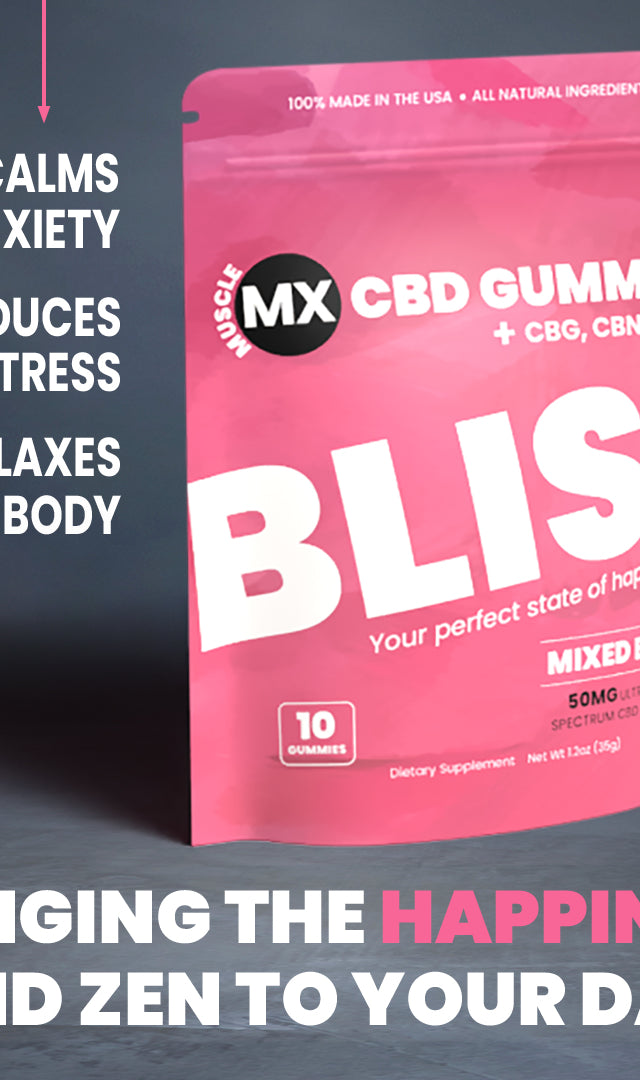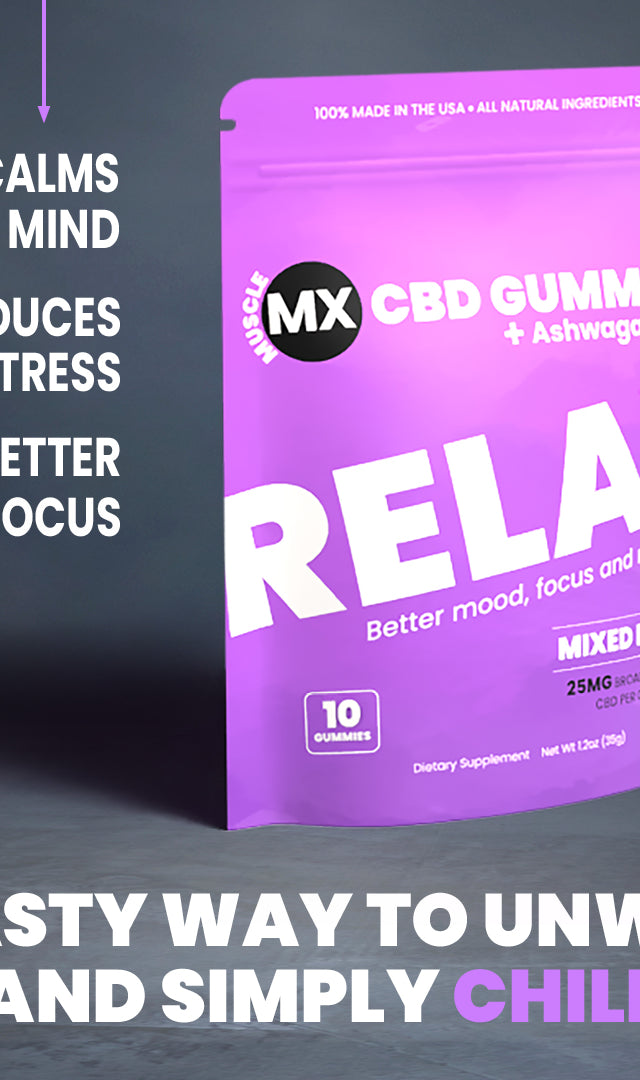How to Master Practical Stress Management Techniques: A Science-Backed Guide
Key Takeaways
Master these evidence-based stress management techniques to build resilience and regain control over life's pressures through mental, physical, and practical approaches.
-
Identify your stress triggers - Keep a stress journal to recognize patterns and understand what situations, thoughts, or behaviors consistently trigger your stress response.
-
Practice the "catch it, check it, change it" technique - Challenge negative thought patterns by examining evidence and replacing catastrophic thinking with balanced perspectives.
-
Use your body to calm your mind - Regular exercise reduces cortisol by 23%, while deep breathing exercises like the 4-7-8 technique activate your parasympathetic nervous system for instant relief.
-
Create boundaries and break tasks down - Learn to say no to prevent overwhelm, and divide large projects into smaller, manageable steps to reduce procrastination and anxiety.
-
Build a comprehensive toolkit - Combine mental techniques (mindfulness, gratitude), physical habits (exercise, quality sleep), and quick relief strategies (sensory tools, calming environments) for maximum effectiveness.
The key to successful stress management isn't eliminating stress entirely, but developing healthy responses that prevent chronic issues. With consistent practice of these science-backed techniques, you can build lasting resilience and transform your relationship with life's inevitable pressures.
Introduction
Stress — it's something we all face, yet it can feel overwhelming when it starts taking over your daily life. Whether it's that familiar knot in your stomach before a big meeting or the constant mental chatter that keeps you awake at night, stress has a way of affecting every aspect of your well-being.
We all experience stress from time to time — it's simply part of being human. The challenge comes when stress becomes a constant companion, clouding your ability to think clearly, perform at your best, and truly enjoy the moments that matter.
Chronic stress can take a serious toll on your health over time, but here's some encouraging news: daily stress management practices can help prevent these long-term issues from developing. Physical activity, in particular, works wonders by releasing those natural feel-good chemicals and supporting your overall sense of well-being. Building emotional resilience, staying in control of what you can influence, nurturing supportive relationships, and maintaining a positive mindset all play important roles in managing stress effectively.
This guide will walk you through proven techniques for managing stress that you can start using today. We'll cover mental strategies, physical approaches, and practical lifestyle adjustments that work with your schedule, not against it. We'll also explore when supportive options like CBD gummies or THC gummies might fit into your stress management approach.
Let's learn how to regain control and develop healthier ways to handle life's inevitable pressures.
What Are the Root Causes of Your Stress?
Understanding what triggers your stress response is the first step toward managing it effectively. Think of it as building a foundation — you can't construct effective coping strategies without knowing what you're working with.
Common Sources of Chronic Stress
Chronic stress develops when stressors stick around for extended periods, becoming unwelcome long-term guests in your life. Money troubles consistently top the list, with 72% of Americans reporting financial stress during the previous month. Other significant sources that many people face include:
- Work-related pressure (40% report their jobs are stressful, while 26% report feeling burned out)
- Relationship conflicts and toxic interactions
- Major life changes like marriage, divorce, or relocation
- Health concerns for yourself or loved ones
- Time management issues and overwhelming responsibilities
Remember, external circumstances aren't the only factors at play here. Your response to potential stressors varies based on your genetics, past experiences, and personal resilience. This explains why what overwhelms one person might barely register for another.
How Your Thoughts Fuel Stress
Your thought patterns have a powerful influence on your stress levels. Here's something important to understand: thoughts consistently come before feelings — you can only feel stressed after thinking about something that triggers that response. This is why two people facing identical situations might have completely different reactions.
Certain negative thought patterns tend to escalate stress:
- Catastrophizing (automatically expecting the worst possible outcome)
- Personalizing (automatically blaming yourself for things beyond your control)
- Rumination (getting stuck in repetitive cycles of negative thinking)
Research shows rumination can worsen existing mental health conditions and contribute to negative emotions even in people without depression or anxiety. A study from the University of Liverpool found that past traumatic experiences lead to depression or anxiety primarily by causing rumination and self-blame.
Using a Stress Journal to Uncover Patterns
Keeping a stress journal can reveal your unique stress patterns in ways that might surprise you. Each time you feel stressed, take note of:
- The specific situation that triggered it
- Your thoughts and physical reactions in the moment
- How you responded to the stress
Over time, you'll start noticing recurring themes and connections. This self-awareness becomes incredibly valuable because, as Cleveland Clinic notes, identifying what you can and cannot control is a good starting point for managing stress. Your stress diary also reveals how your underlying assumptions, shaped by past experiences, influence your response to current situations.
Mental Techniques for Stress Management
Your mind holds incredible power when it comes to stress — it can either fuel the fire or help put it out. Mental techniques offer some of the most effective tools for managing stress because they work with what you already have: your thoughts, your breath, and your ability to shift perspective.
Reframe Negative Thoughts
Have you ever noticed how your thoughts can spiral from one worry to the next? Your thinking patterns play a huge role in how stressed you feel. The good news is that you can learn to interrupt these patterns with the "catch it, check it, change it" approach.
When you catch yourself thinking negatively, pause and examine what's really happening. Are you automatically expecting the worst? Focusing only on what could go wrong while ignoring what's going right? Seeing everything in black and white with no middle ground?
These unhelpful thinking patterns are more common than you might think:
- Expecting the worst possible outcome in every situation
- Zeroing in on negatives while completely overlooking positives
- Thinking in extremes — everything is either perfect or terrible
- Taking the blame for things that aren't entirely your fault
Try asking yourself, "What would I tell a good friend who was thinking this way?" This simple question can help create some distance between you and your stressful thoughts.
Practice Mindfulness and Meditation
Meditation isn't about stopping your thoughts — it's about changing your relationship with them. When you practice regularly, you create space between what you think and how you react. Research shows that meditation can actually decrease the size of your amygdala — that's the part of your brain responsible for your stress response.
Starting small makes all the difference. Focus on your breathing for just 5-10 minutes each day. Your mind will wander — that's completely normal. When it does, gently guide your attention back to your breath without judging yourself.
Use Gratitude to Shift Perspective
Gratitude works like a natural stress reliever, lowering cortisol levels by about 23% in your body. It's not about pretending everything is perfect — it's about noticing what's working in your life, even during difficult times.
You can start simple: write down three things you're grateful for each morning or evening. They don't have to be big things. Maybe it's your morning coffee, a text from a friend, or just having a comfortable bed to sleep in.
Try Deep Breathing Exercises
Your breath is one of the fastest ways to calm your nervous system. Deep breathing activates your body's relaxation response, basically telling your stress response to take a break.
Box breathing is straightforward and effective: breathe in for four counts, hold for four, breathe out for four, and hold again for four. Repeat this pattern several times.
For immediate relief when you're feeling overwhelmed, try the 4-7-8 technique: inhale for four seconds, hold your breath for seven seconds, then exhale slowly for eight seconds. You can also practice diaphragmatic breathing by placing one hand on your chest and one on your belly — focus on making the hand on your belly rise and fall with each breath.
Physical and Lifestyle-Based Stress Reduction Techniques
Your mind and body work together more closely than you might realize. While mental techniques provide powerful tools for managing stress, your physical habits and lifestyle choices play an equally important role in how your body responds to life's pressures.
Exercise and Movement for Stress Relief
Physical activity works like a natural stress-fighting medicine. When you move your body, it directly lowers cortisol levels while releasing endorphins — those feel-good chemicals that naturally boost your mood. You don't need an intense workout to see benefits. A simple 20-minute walk can help clear mental fog and release physical tension.
Regular exercise creates what experts call "muscular meditation," where the rhythmic nature of movement produces a calming effect that lasts well after you've finished. Aerobic activities are particularly effective because they increase oxygen flow throughout your body, helping to relax tense muscles and support heart health.
Sleep Hygiene and Its Impact on Stress
Poor sleep and stress feed off each other in a frustrating cycle. 42% of adults report fair or poor sleep quality, with 43% saying stress kept them awake at night. When you're sleep-deprived, your memory, judgment, and mood all suffer, making you more reactive to stressful situations. Research shows that adults getting fewer than eight hours of sleep report significantly higher stress levels compared to those who get adequate rest (5.5 vs. 4.4 on a 10-point scale).
Simple changes can make a big difference:
- Keep consistent sleep and wake times
- Put screens away 30 minutes before bed
- Limit caffeine and alcohol intake
- Develop a relaxing bedtime routine
Healthy Eating Habits That Support Calm
What you eat directly influences how your body handles stress. Foods rich in omega-3 fatty acids (think salmon and tuna), magnesium (found in avocados), and quality protein (eggs and lean meats) help your body regulate cortisol levels. Consider adding:
- Fibrous vegetables and fruits to help reduce inflammation
- Fermented foods like yogurt that support the gut-brain connection
- Complex carbohydrates that help your body produce serotonin
Avoiding Alcohol, Smoking, and Drugs
It might seem like alcohol or nicotine help you relax, but they actually work against your stress management efforts. Alcohol disrupts your sleep quality, especially REM sleep, making it harder for your body to recover from daily stress. Smoking creates a false sense of relaxation followed by withdrawal symptoms that increase anxiety. Both substances can raise stress hormone levels and worsen anxiety and depression over time.
Exploring CBD Gummies and THC Gummies Safely
CBD gummies have become increasingly popular for anxiety management — 79% of people interested in CBD specifically seek gummies. While research suggests CBD may help reduce symptoms associated with certain types of anxiety, it's important to remember that it's not a replacement for medical treatment.
If you're considering CBD as part of your stress management approach:
- Start with low doses (10-40mg)
- Consult with healthcare providers, especially if you take other medications
- Be aware that THC may actually increase anxiety in some people
- Always keep cannabis products away from children
Understanding these physical and lifestyle factors gives you a solid foundation to build upon. When combined with the mental techniques we discussed earlier, these approaches can help create a well-rounded stress management strategy that supports your overall well-being.
Quick and Practical Stress Management Strategies
Sometimes you need stress relief right now — not after a long meditation session or a trip to the gym. These quick techniques can provide immediate support when life feels overwhelming, and they require just minutes of your time to make a real difference in how you feel.
Use Sensory Tools for Instant Calm
Have you ever noticed how fidgeting with something in your hands can help you focus during a stressful meeting? Fidget toys work because they give your nervous energy somewhere to go, potentially helping with anxiety and concentration. Aromatherapy dough takes this concept even further — the squeezing motion releases physical tension while calming scents like lavender work to soothe your mind. If you tend to feel overwhelmed by sensory input, specialized calming products can help you manage those intense feelings and find the sensory regulation you need.
Create a Calming Environment
Your surroundings play a bigger role in your stress levels than you might realize. Spaces filled with items that bring you joy can naturally ease tension, while cluttered, chaotic rooms tend to have the opposite effect. Try incorporating neutral colors, which are gentler on your eyes than bold, bright shades. Soft lighting from candles can transform any room — "Having a bright, lighted room makes a space feel more inviting and put together". Add pleasant aromas through essential oils like eucalyptus or chamomile, and you'll create that spa-like atmosphere right in your own home.
Laugh, Listen to Music, or Engage in Hobbies
Laughter truly is medicine — research shows it physically reduces stress-causing factors in your body while boosting the elements that elevate your mood. Music works similarly, with slower-tempo songs helping quiet your thoughts and relax tense muscles. Studies show that music with around 60 beats per minute can actually cause your brain to sync with the rhythm, creating those alpha brainwaves linked to relaxation.
Set Boundaries and Learn to Say No
Setting healthy boundaries isn't selfish — it's essential for your well-being and the health of your relationships. When you live within clear boundaries, you'll experience lower stress and greater life satisfaction. Remember, anxiety often creeps in when you start taking responsibility for other people's emotions or behaviors. Signs you might need stronger boundaries include feeling resentful when others ask too much of you or automatically saying yes to things you'd rather avoid.
Break Tasks Into Smaller Steps
Facing a massive project can feel paralyzing, but breaking it down into smaller pieces helps you avoid both stress and procrastination. This approach not only improves the quality of your work but also makes the entire experience more manageable. Here's how to tackle it:
- Start by looking at the big picture to understand your end goal
- Break down the task step-by-step
- Create a timeline with specific deadlines for each component
Even spending just 5 minutes on one small part can build momentum and make it easier to get started.
Final Thoughts
Finding the right stress management approach is really about discovering what resonates with your life and your unique circumstances. We've covered a range of science-backed strategies that can help you tackle stress from different angles.
Understanding what triggers your stress response is where everything begins. That stress journal we talked about? It can be eye-opening in revealing patterns you might not have noticed before.
Your mind is incredibly powerful when it comes to managing stress. Those mental techniques — reframing thoughts, practicing mindfulness, focusing on gratitude, and using breathing exercises — can genuinely change how you experience stressful situations. The best part? They don't require hours of your day to make a real difference.
Your physical habits play a huge role too. Regular movement, quality sleep, and nourishing your body with the right foods all work together to support your natural ability to handle stress. Steering clear of substances that add extra strain on your system helps keep things in balance.
For those moments when you need immediate relief, having quick go-to strategies makes all the difference. Whether it's using sensory tools, creating a calm space around you, enjoying activities that bring you joy, or simply breaking big tasks into smaller pieces — these practical approaches can prevent stress from spiraling.
Remember, effective stress management isn't about living a stress-free life — that's not realistic for any of us. It's about building healthy ways to respond so that stress doesn't become a chronic burden. When you practice these techniques consistently, you're building resilience that will serve you well through whatever life throws your way.
Your stress management journey is uniquely yours, and we're here to support you every step of the way. With patience and practice, you can develop the skills needed to handle stress more effectively and create more balance in your daily life.
FAQ's About Practical Stress Management Techniques
Q: What are some quick and effective stress management techniques?
A: Some quick and effective stress management techniques include deep breathing exercises like the 4-7-8 technique, using sensory tools like fidget toys, creating a calming environment with soft lighting and pleasant aromas, engaging in laughter or listening to music, and breaking large tasks into smaller, manageable steps.
Q: How does exercise help in managing stress?
A: Exercise is a powerful stress-reducer that lowers cortisol levels while boosting mood-elevating endorphins. Even a 20-minute walk can help clear your mind and reduce tension. Regular physical activity acts as a form of "muscular meditation," creating a sense of calm that extends beyond the workout itself.
Q: Can diet affect stress levels?
A: Yes, diet significantly impacts stress levels. Foods rich in omega-3s (like salmon), magnesium (found in avocados), and protein (eggs, lean meats) help regulate cortisol levels. Incorporating fibrous vegetables and fruits, fermented foods, and complex carbohydrates can also support stress management by reducing inflammation and supporting serotonin production.
Q: How can I improve my sleep to reduce stress?
A: To improve sleep and reduce stress, maintain consistent sleep-wake times, avoid screens 30 minutes before bed, limit caffeine and alcohol intake, and create a relaxing bedtime routine. Adults getting less than eight hours of sleep report significantly higher stress levels, so prioritizing quality sleep is crucial for stress management.
Q: What role does mindfulness play in stress management?
A: Mindfulness and meditation play a crucial role in stress management by creating space between your thoughts and reactions. Regular practice can decrease the size of the brain's stress-response center, making you less reactive to stress triggers. Even just 5-10 minutes of daily mindfulness practice, such as focusing on your breathing, can be beneficial.
References
https://www.helpguide.org/mental-health/stress/stress-management
https://www.cdc.gov/mental-health/living-with/index.html
https://www.mayoclinic.org/healthy-lifestyle/stress-management/in-depth/stress-relievers/art-20047257
https://www.nhs.uk/mental-health/self-help/guides-tools-and-activities/tips-to-reduce-stress/
https://www.verywellmind.com/what-are-the-main-causes-of-stress-3145063
https://www.mayoclinic.org/healthy-lifestyle/stress-management/in-depth/stress/art-20046037
https://www.brownhealth.org/be-well/thoughts-feelings-and-stress
https://www.mayoclinic.org/healthy-lifestyle/stress-management/in-depth/positive-thinking/art-20043950
https://www.psychiatry.org/news-room/apa-blogs/rumination-a-cycle-of-negative-thinking
https://www.mayoclinic.org/healthy-lifestyle/stress-management/basics/stress-relief/hlv-20049495
https://pmc.ncbi.nlm.nih.gov/articles/PMC1071234/
https://www.mayoclinic.org/healthy-lifestyle/stress-management/in-depth/exercise-and-stress/art-20044469

















































